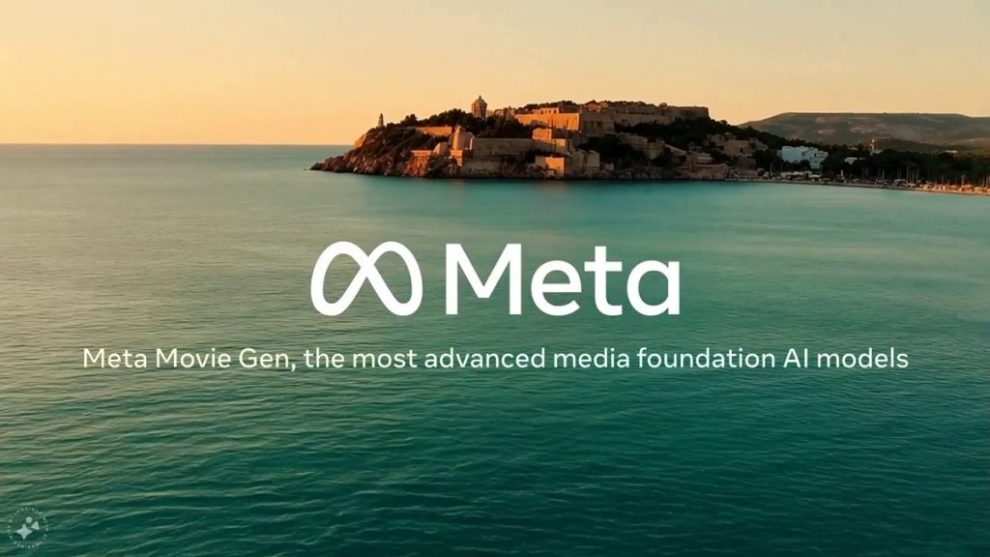There’s an electric atmosphere in the air. Today, October 4, 2024, marks a pivotal moment in the world of artificial intelligence and digital content creation. Meta has just unveiled Movie Gen, its groundbreaking AI-powered video generator, capable of producing high-definition footage complete with sound.
The Future of Video Creation: Meta’s Movie Gen Takes Center Stage
Walking through Meta’s innovation lab, I’m surrounded by screens displaying an array of stunning, AI-generated videos. Dr. Sarah Chen, Meta’s lead AI researcher, greets me with enthusiasm. Movie Gen represents a quantum leap in AI-driven content creation,” she explains, her eyes glowing with excitement. We’re not just generating videos; we’re opening up new realms of creative possibility.”
Movie Gen’s capabilities are truly impressive. Using text inputs, it can automatically generate new videos, edit existing footage, or even breathe life into still images. But what sets it apart is its ability to match imagery with AI-generated ambient noise, sound effects, and background music, creating a fully immersive audiovisual experience.
Transforming Ideas into Reality: The Power of Text-to-Video
As Chen demonstrates the technology, I watch in awe as a simple text prompt transforms into a vivid, high-definition video complete with sound. “Imagine being able to bring any concept to life with just a few words,” she says. “That’s the power of Movie Gen.”
One of the most striking examples shows a still headshot of a woman. With a few keystrokes, the image comes to life, depicting the woman sitting in a pumpkin patch, sipping a drink. The attention to detail is remarkable, from the subtle movements of her hair to the ambient sounds of a crisp autumn day.
Revolutionizing Video Editing: AI-Powered Creativity
But Movie Gen isn’t just about creating videos from scratch. It also offers powerful editing capabilities for existing footage. Chen shows me a video of an illustrated runner, which is then transformed in various ways using simple text prompts.
“Watch this,” she says, typing rapidly. In an instant, the runner is holding pompoms. Another prompt, and the background shifts to a desert landscape. A third transformation, and the runner is wearing a dinosaur costume. “The possibilities are limitless,” Chen beams.

The Race for AI Video Supremacy: Meta’s Strategic Move
Meta’s announcement comes several months after OpenAI unveiled Sora, its own text-to-video model. This move positions Meta at the forefront of AI video generation technology, alongside other tech giants like Google and numerous startups.
However, Chris Cox, Meta’s chief product officer, cautions that public access to Movie Gen isn’t imminent. We aren’t ready to release this as a product anytime soon,” he wrote on Threads. “Generation time is still too long, and the process remains expensive.”
Ethical Considerations: Navigating the AI Frontier
As we discuss the implications of this technology, Chen acknowledges the ethical concerns that have arisen with AI image and video generators. “We take these concerns very seriously,” she assures me. “Meta trained Movie Gen on a combination of licensed and publicly available datasets, ensuring we respect intellectual property rights.”
Nevertheless, the potential impact on creative industries is undeniable. Filmmakers, photographers, artists, and actors have expressed concerns about how AI generators might affect their livelihoods. The historic joint Hollywood strikes by SAG-AFTRA and WGA last year highlighted the centrality of AI in ongoing discussions about the future of creative work.
John Rodriguez, a veteran Hollywood filmmaker I spoke with via video call, shares his perspective: “While the technology is undoubtedly impressive, we need to ensure it enhances rather than replaces human creativity. The human touch in storytelling is irreplaceable.
As my tour of Meta’s facilities comes to an end, I can’t help but reflect on the profound implications of Movie Gen. While the technology offers exciting possibilities for content creators, it also raises important questions about the future of digital media and artistic expression.

Chen remains optimistic about the potential of Movie Gen to democratize video creation. “We envision a future where anyone can bring their ideas to life, regardless of their technical skills or resources,” she says. “But we also recognize our responsibility to develop this technology thoughtfully and ethically.”
In the coming months, Meta plans to engage with creators, ethicists, and policymakers to address concerns and establish guidelines for responsible use of AI-generated video content.
As I leave the Meta campus, the sun setting over Silicon Valley, I’m struck by the sense that we’re standing at the threshold of a new era in digital content creation. Movie Gen represents not just a technological breakthrough, but a fundamental shift in how we conceive of and produce visual media.
While challenges remain, the potential of AI-powered video generation to unlock new realms of creativity and expression is undeniable. As Meta continues to refine Movie Gen, the world watches with bated breath, eager to see how this technology will reshape the landscape of digital content in the years to come.
















Add Comment